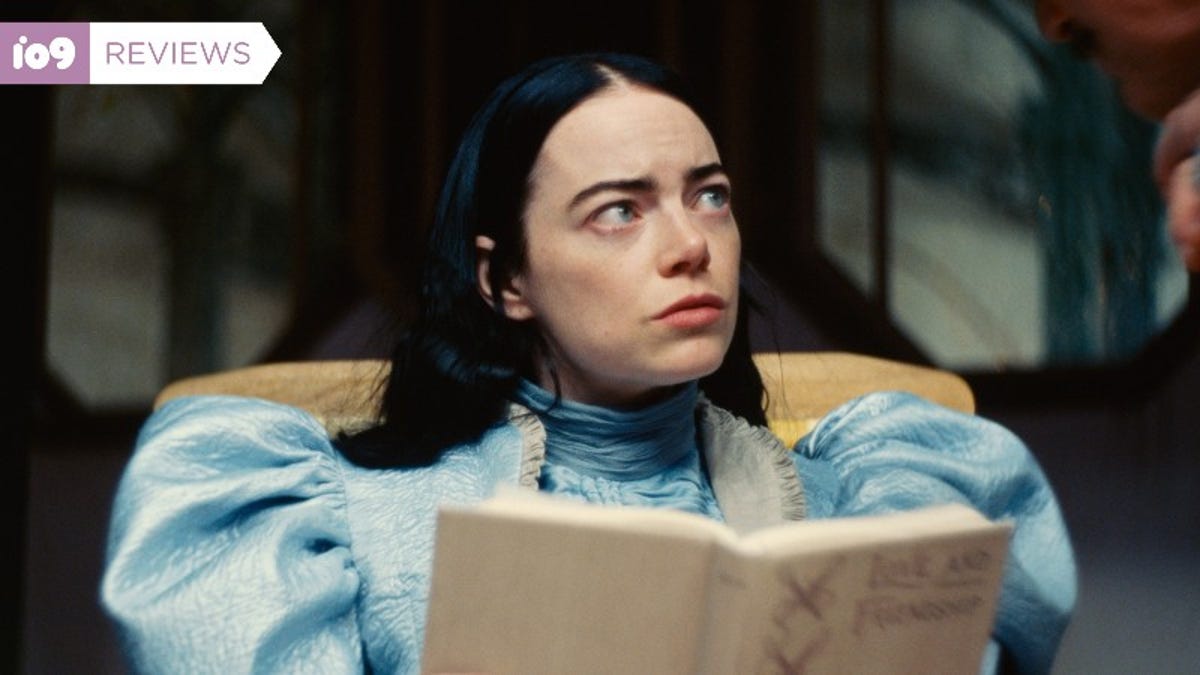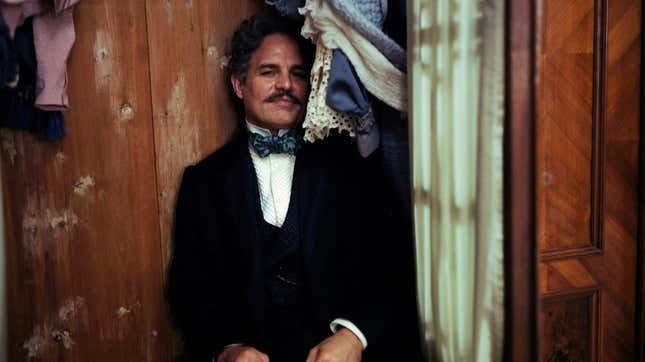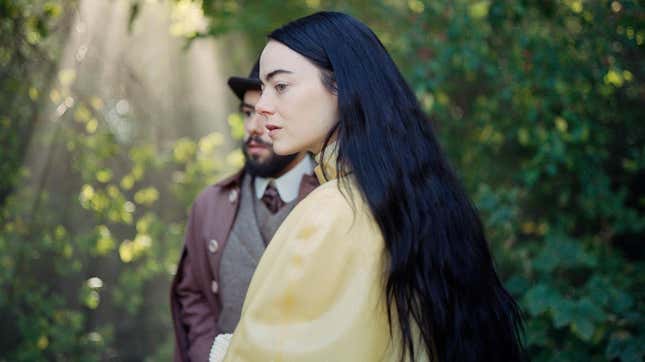
At its core, Poor Things is the relatively simple story of a woman growing up and finding herself. However, in the hands of director Yorgos Lanthimos (The Lobster, The Favourite), it tells that tale in the most fantastical, imaginative, disturbing, and hilarious way possible. Words that, in fact, also describe the film as a whole.
Poor Things centers on a woman named Bella, played by Oscar winner Emma Stone. Bella has the body of a grown woman but the demeanor of a child. A very, very young child. At the start, she can barely walk or string together more than a word or two. This is because, we learn very early on, Bella is the creation of a mad genius named Dr. Godwin Baxter (who goes by “God”), played by Spider-Man alum Willem Dafoe. God lives up to his nickname when we learn he *minor spoiler alert* found an anonymous, pregnant woman dead in a river, brought her back to the lab, took the brain from her unborn child, and put it in the woman’s head. And so Bella was born.
Lanthimos takes that admittedly bonkers, unfathomable premise, and inserts it into an equally wild world presented with dynamic, in-your-face filmmaking. From the over-the-top outfits and grand set dressing to hybrid animals and flying cable cars viewed through a black and white fisheye lens, God and Bella’s world is clearly in the past, but still feels otherworldly. Those mixes of old and new, weird and familiar, are keys to balancing these otherwise unbelievable characters. By the time God recruits a young student played by Ramy Youssef to document Bella’s growth, we’re completely transfixed by them as well as the world.
As children do, Bella grows up quickly. She learns to walk normally, speak eloquently, and improve her manners. In the body of an adult though, she also starts to discover things about herself. Things such as the pleasure one can create from touching certain parts of their own body, sending the story in a whole other direction.
Based on a novel by Alasdair Gray, and adapted by Tony McNamara, Poor Things is a simple story of discovery through a prism of complete and utter madness. Madness that works primarily due to Stone’s jaw-dropping performance. Over the course of the film, Stone takes us through the full gamut of the human experience starting at near infant to, later in the film, a fully formed adult. And while that would be magical and impressive on its own, Stone handles it so well and so subtly that from scene to scene you hardly even notice it. One minute, you’re watching her barely able to talk and then, a few scenes later you’ll be like “Wait, Bella is smart now, when did that happen?”
A big part of that comes from a witty socialite named Duncan Wedderburn, played by Marvel mainstay Mark Ruffalo. While Bella’s early life is confined to the grounds of God’s home, her horizons expand figurately and literally when she’s whisked away by Duncan. In Bella, Duncan sees a young, naive woman he can take advantage of. But through her relationship with Duncan, Bella becomes much more worldly and mature, and the characteristics that make a person an individual begin to take shape.

Dafoe, Ruffalo, and the rest of the cast are all quirky and excellent, perfectly fitting in this off-kilter world Lanthimos has created. And yet, you always sense they’re there merely to help aid Bella’s story, which spends a huge chunk of time on her sexual awakening. At first, Bella’s sexual appetite can be a tad awkward, but each scene serves as a crucial step in her overall journey, especially with Bella’s confidence and mindset clearly on display. Eventually, after a few minutes, the sex (and Lanthimos’ filming of it) just becomes another facet of this world. Odd? Sure. But oddly normal too.
“Oddly normal” describes the film’s tone as well. Many of the situations Bella finds herself in are played for straight comedy while others have an occasional dash of terror. In the hands of a lesser filmmaker, those extremes might not work, but Lanthimos finds just the right balance, letting us laugh, cry, and cover our eyes time and time again. And though there is an undeniable joy in watching Bella blossom into adulthood, the film always has its truth hanging over it. That Bella is, in fact, not Bella. She’s a Frankensteined creation based on a pregnant woman who killed herself. And once the film gets back around to that, we see that it, like Bella, really needed some time before facing facts.

While Poor Things is shocking, fascinating, endlessly weird, and entertaining, more than any of that, it’s a showcase for Emma Stone. Her transformative performance takes this admittedly familiar story—albeit it one told in a wholly new and original way—and gives it a unique edge. Poor Things doesn’t change our views on what it’s like to become an adult, but Stone’s portrayal of it at least lets us reflect on it in a fun way. The film’s success comes from the enjoyment of seeing a wild, visually sumptuous spin on a tried and true story and watching one of our best actresses execute that role with incredible skill, joy, and confidence. That it’s told from the mind of the mad genius Lanthimos only adds to the fun.
Poor Things opens in theaters December 8.
Want more io9 news? Check out when to expect the latest Marvel, Star Wars, and Star Trek releases, what’s next for the DC Universe on film and TV, and everything you need to know about the future of Doctor Who.






